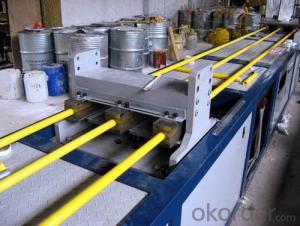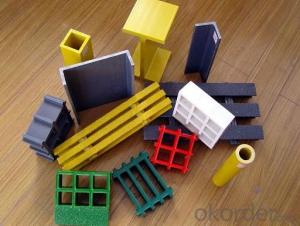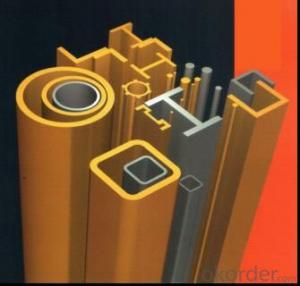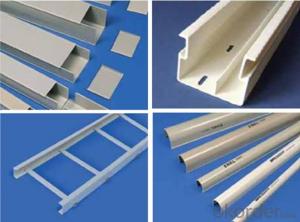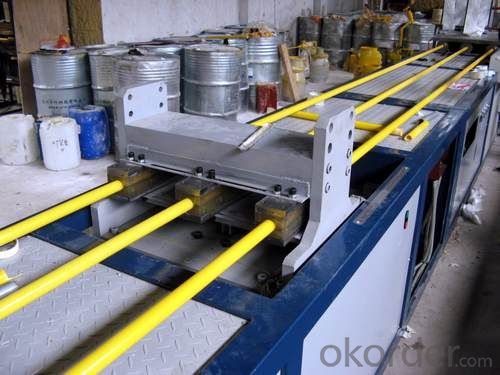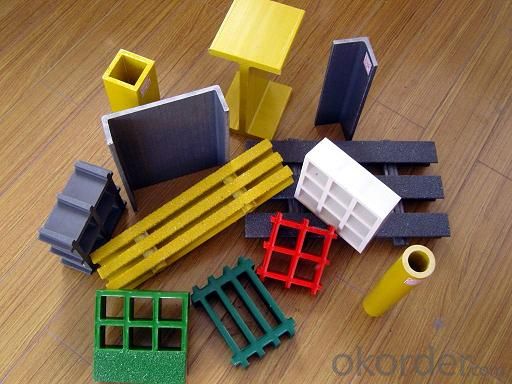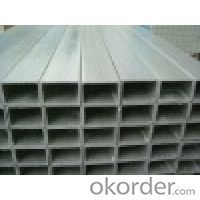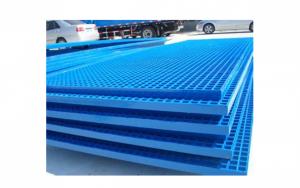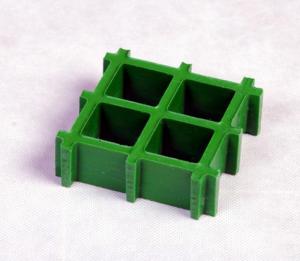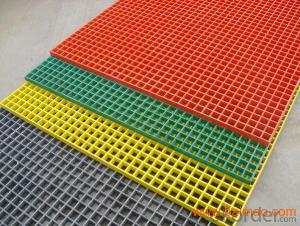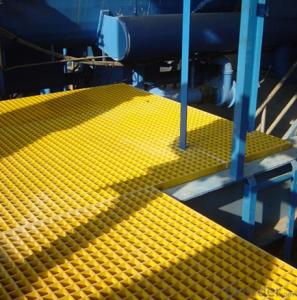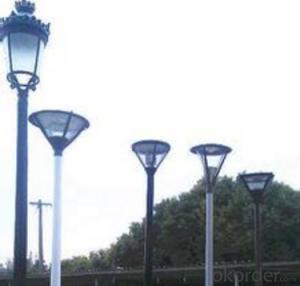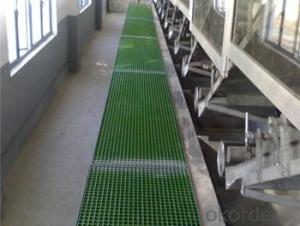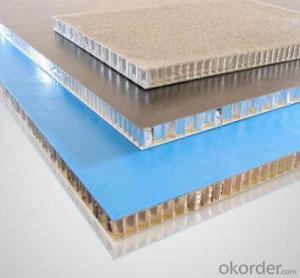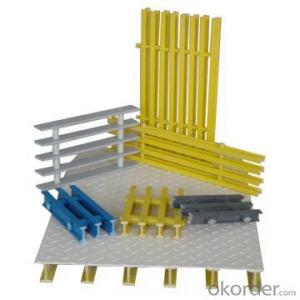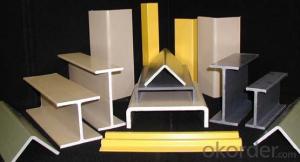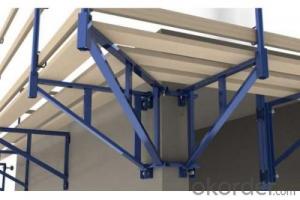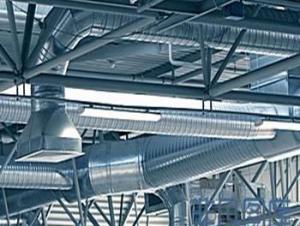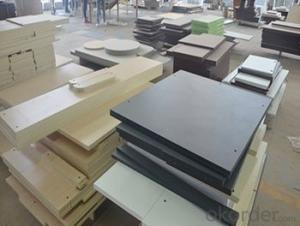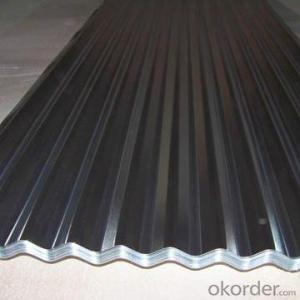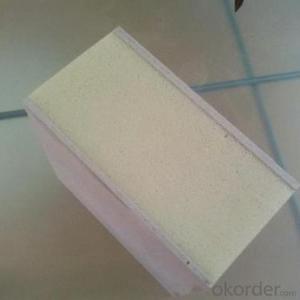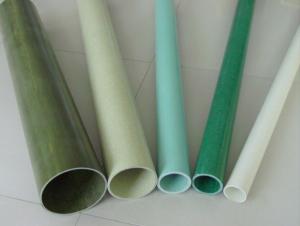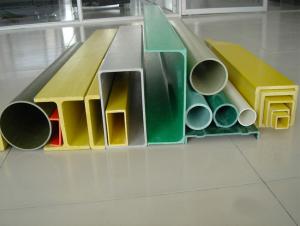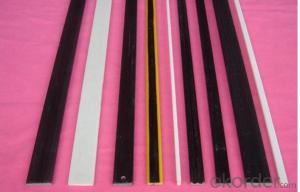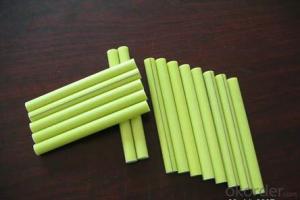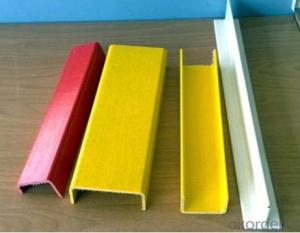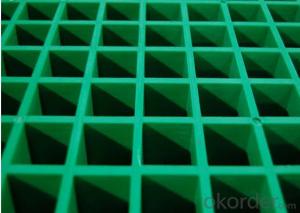FRP Pultrusion Profiles - Anti-Fatigue FRP Pultruded Gratings Easy Maintenance
- Loading Port:
- Tianjin
- Payment Terms:
- TT OR LC
- Min Order Qty:
- 5000 m.t.
- Supply Capability:
- 100000 m.t./month
OKorder Service Pledge
OKorder Financial Service
You Might Also Like
Specification
COMPANT DESCRIPTION
CNBM,China National Building Materials Group is a state-owned enterprise in charge of administrative affairs in china building materials industry. Established in 1984, CNBM is a large group corporation of building materials with total assets of 25 billion RMB and a total staff of 30,000.CNBM now owns 200 subordinating firms of solely owned and joint-venture companies.
CNBM International Corporation is one subsidiary of CNBM, we focus on offering good-quality products,professional service and complete solution to our customers. Strong delivery capacity, advanced technology& management, strong financing capability and excellent after-sale service are our advantages in sharing international market.
CHARACTERISTICS
Pultruded grating is made by a par ticular assembly process, which using “I” shape as its main load-bearing and special rod to go through the bearing bar. Pultruded grating include the standard grating and the custom grating, the custom grating can be designed to meet customer’s requirement or special using condition by changing the shape, size and space of the bearing bars, the sur face can be covered with lozenge panel, grit panel, or added the anti-slippery sand directly.
FRP pultruded grating has the most characteristics of molded grating, but it has its distinct advantages, it has very high fiberglass content in the loading direction, so it has very high load capability, it has more superiority when used at wide span, so that the basic support will be decreased and the project cost will be reduced accordingly.
CHOICE FOR PULTRUDED GRATING
Resin: GP resin, ISO resin,VE resin,Phenolic resin
Color choice: Yellow, gray,green, custom color
Surface choice: Groove surface,grit surface,lozenge cover surface
FEATURES
a. Anti-corrosion and anti-rust
b. Light weight and high strength
c. Anti-flammable
d. Anti- fatigue
e. Safe and anti-slippery
f. Anti-ageing
g. Easy of maintenance
h. Excellent electromagnetism property
i. Good economic benefit
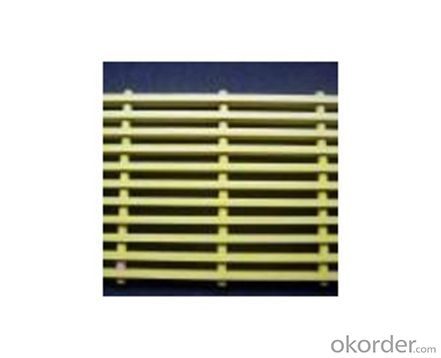
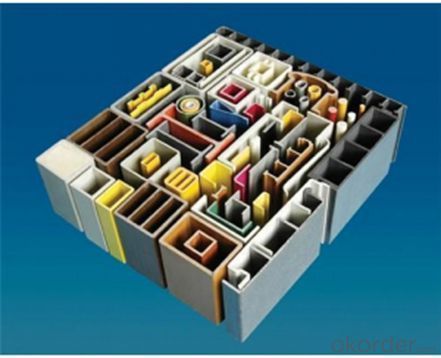
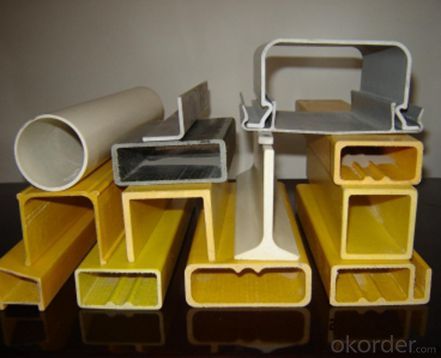
- Q: What are the different types of FRP pultrusion profiles available?
- A variety of FRP pultrusion profiles are available to meet specific application requirements and performance criteria. These profiles include: 1. Standard shapes: These profiles are widely used in various industries and applications. They come in different sizes and shapes, such as round tubes, square tubes, rectangular tubes, and angles. Standard shapes offer versatility and are suitable for both structural and non-structural applications. 2. Custom profiles: These profiles are tailored to customer specifications. They offer flexibility in terms of shape, dimensions, and reinforcement options. Custom profiles are ideal for unique or specialized applications where standard shapes may not suffice. 3. Structural profiles: These profiles are designed for high strength and stiffness. They are commonly used in load-bearing applications, including beams, columns, and trusses. Structural profiles are reinforced with additional fibers to enhance their load-bearing capacity. 4. Electrical profiles: These profiles possess excellent electrical insulation properties. They find application in electrical and electronics applications such as cable trays, busbars, and insulating supports. Electrical profiles offer high dielectric strength and resistivity. 5. Environmental profiles: These profiles are formulated to withstand harsh environmental conditions, including extreme temperatures, UV radiation, and chemical exposure. They are commonly used in outdoor applications like structural supports, handrails, and grating systems. Environmental profiles offer long-term durability and resistance to degradation. 6. Fire-retardant profiles: These profiles are designed to have improved fire resistance properties. They are commonly used in applications where fire safety is crucial, such as building construction, transportation, and aerospace. Fire-retardant profiles incorporate additives that inhibit flame spread and reduce smoke generation. It is important to note that these are just a few examples of the FRP pultrusion profiles available. Depending on specific industry requirements, there may be other specialized profiles. The selection of the appropriate profile depends on factors such as the intended application, load requirements, environmental conditions, and regulatory standards.
- Q: Are FRP pultrusion profiles resistant to alkalis?
- FRP pultrusion profiles are generally able to resist alkalis. This is because FRP composites are materials made of a polymer matrix reinforced with fibers like glass or carbon. The polymer matrix in FRP pultrusion profiles has excellent resistance to alkalis, making them suitable for use in places where alkalis are present, such as chemical processing plants, wastewater treatment facilities, or marine structures. However, the resistance of FRP pultrusion profiles to alkalis may vary depending on factors like the type of polymer resin used and the concentration and temperature of the alkali solution. Therefore, it is important to refer to the manufacturer's specifications or perform specific tests to ensure that FRP pultrusion profiles are compatible with the intended alkali environment.
- Q: What is the shear strength of FRP pultrusion profiles?
- The shear strength of FRP pultrusion profiles can vary due to multiple factors, including the quality and type of fibers, the resin matrix, and the manufacturing process. FRP pultrusion profiles generally possess high shear strength because of the continuous fibers that run along their length. To determine the shear strength of FRP pultrusion profiles, industry standards like ASTM D2344 or ISO 14129 are commonly employed for testing. These tests involve subjecting the profile to a shear force until it fails, allowing for the calculation of shear strength. The exact shear strength values for FRP pultrusion profiles can differ significantly based on their specific composition and design. However, it is not uncommon for these profiles to exhibit shear strengths of 50-150 MPa or higher. Consequently, they are suitable for a broad range of structural applications that involve shear forces. It is worth noting that the shear strength of FRP pultrusion profiles can be affected by factors such as temperature, moisture, and exposure to chemicals. Therefore, it is crucial to consider the environmental conditions and application requirements when selecting the appropriate FRP profile. Overall, FRP pultrusion profiles are renowned for their exceptional shear strength, which contributes to their widespread use and effectiveness in industries like construction, transportation, and infrastructure.
- Q: What are the best manufacturers of glass fiber reinforced plastic pultruded profiles in China?
- We have made 2.5mm thick at the moment
- Q: Can FRP pultrusion profiles be used in cooling towers?
- Cooling towers can indeed utilize FRP (Fiber Reinforced Polymer) pultrusion profiles. These profiles possess several advantages that make them suitable for such applications. To begin with, the corrosion resistance of FRP pultrusion profiles is exceptional, a crucial attribute in a cooling tower setting where exposure to water and chemicals is commonplace. Unlike conventional materials like steel, FRP pultrusion profiles do not rust or corrode, ensuring a longer service life and reduced maintenance expenses. Secondly, FRP pultrusion profiles exhibit a high strength-to-weight ratio, rendering them lightweight yet sufficiently robust to meet the structural demands of cooling towers. This facilitates easier installation and transportation, ultimately reducing the overall project costs. Thirdly, FRP pultrusion profiles boast excellent thermal insulation properties. As cooling towers involve the transfer of heat from water to the surrounding air, the thermal insulation provided by these profiles enhances the efficiency of the cooling process. Lastly, FRP pultrusion profiles are highly customizable and can be tailored to meet the specific requirements of cooling tower applications. They can be engineered to possess various shapes, sizes, and dimensions, ensuring a precise fit for the cooling tower design. Overall, FRP pultrusion profiles represent a dependable and cost-effective choice for cooling tower applications. Their corrosion resistance, high strength-to-weight ratio, thermal insulation capabilities, and customization options make them an excellent option.
- Q: Can FRP pultrusion profiles be used in the transportation and logistics industry?
- Yes, FRP (Fiber Reinforced Polymer) pultrusion profiles can be used in the transportation and logistics industry. FRP pultrusion profiles offer several advantages that make them suitable for various applications in this industry. Firstly, FRP pultrusion profiles are lightweight yet extremely strong and durable. This makes them ideal for use in transportation vehicles, such as trucks, trailers, and containers, where reducing weight is crucial for improving fuel efficiency and reducing emissions. Despite their lightweight nature, FRP pultrusion profiles can withstand heavy loads and harsh environmental conditions, ensuring their reliability and longevity. Secondly, FRP pultrusion profiles are highly corrosion-resistant. Unlike traditional materials, such as steel or aluminum, FRP does not rust or corrode when exposed to moisture or chemicals. This makes FRP profiles suitable for use in transportation and logistics applications that involve exposure to corrosive substances, such as saltwater, chemicals, or acidic environments. By using FRP pultrusion profiles, companies can reduce maintenance costs associated with corrosion and prolong the lifespan of their equipment. Additionally, FRP pultrusion profiles offer design flexibility. They can be manufactured in various shapes, sizes, and configurations to meet the specific requirements of transportation and logistics applications. Whether it is for structural components, platforms, flooring, or supports, FRP profiles can be customized to fit different needs, ensuring optimal performance and functionality. Moreover, FRP pultrusion profiles have excellent electrical and thermal insulation properties. This makes them suitable for applications where electrical conductivity needs to be minimized or thermal insulation is required. In the transportation and logistics industry, this can be beneficial for applications such as insulation for refrigerated containers or electrical insulation for specialized vehicles. In summary, FRP pultrusion profiles are well-suited for the transportation and logistics industry. Their lightweight, strong, durable, corrosion-resistant, and customizable nature, along with their electrical and thermal insulation properties, make them a reliable choice for various applications in this sector.
- Q: Can FRP pultrusion profiles be used in the telecommunications industry?
- Indeed, the telecommunications industry can use FRP (Fiber Reinforced Polymer) pultrusion profiles. These profiles have numerous advantages that make them appropriate for telecommunications applications. Firstly, FRP pultrusion profiles are both lightweight and immensely strong, making them perfect for telecommunications infrastructure. They can be utilized in the design and construction of structures such as antenna mounts, support poles, cable trays, and enclosures. The lightweight nature of FRP profiles simplifies installation and maintenance, reducing the overall cost and effort involved in establishing and upkeeping telecommunications systems. Secondly, FRP pultrusion profiles possess exceptional corrosion resistance properties. This is especially crucial in the telecommunications industry, as infrastructure components are frequently exposed to harsh weather conditions and environmental factors. Unlike traditional materials like steel or aluminum, FRP profiles do not rust or corrode, guaranteeing their durability and dependability in telecommunications applications. Moreover, FRP pultrusion profiles provide electrical insulation properties, which are essential in the telecommunications industry. These profiles do not conduct electricity, making them suitable for applications requiring electrical grounding or isolation. This characteristic ensures the safety of telecommunications equipment and personnel. Furthermore, FRP pultrusion profiles can be tailored to meet specific project requirements. They can be engineered with specific dimensions, shapes, and load-bearing capacities as needed. This flexibility allows for the design and fabrication of telecommunications infrastructure that meets the unique demands of each project. In conclusion, FRP pultrusion profiles are well-suited for telecommunications applications due to their lightweight, high strength, corrosion resistance, electrical insulation properties, and customization options. These profiles offer a reliable and cost-effective solution for various applications within the telecommunications sector.
- Q: Are FRP pultrusion profiles resistant to fire?
- Yes, FRP (Fiber Reinforced Polymer) pultrusion profiles are generally resistant to fire. The composition of FRP includes a resin matrix and reinforcing fibers, such as fiberglass or carbon fiber, which provide excellent fire resistance properties. The resin matrix used in FRP typically has a high flame resistance rating, and the reinforcing fibers do not burn easily. As a result, FRP pultrusion profiles have a high ignition temperature and are inherently self-extinguishing, meaning they will not continue to burn once the flame source is removed. Additionally, FRP pultrusion profiles do not release toxic fumes or smoke when exposed to fire, making them a safer alternative to traditional materials like wood or steel. However, it is important to note that the fire resistance of FRP pultrusion profiles can vary depending on the specific resin formulation and reinforcement material used.
- Q: Can FRP pultrusion profiles be used in the construction of modular buildings?
- Yes, FRP (Fiber Reinforced Polymer) pultrusion profiles can be used in the construction of modular buildings. FRP pultrusion profiles offer several advantages that make them suitable for modular construction. Firstly, FRP pultrusion profiles are lightweight, yet highly durable and strong. This makes them ideal for use in modular buildings where weight reduction is crucial for transportation and assembly. The strength-to-weight ratio of FRP pultrusion profiles is often higher than that of traditional construction materials such as steel or concrete. Secondly, FRP pultrusion profiles are resistant to corrosion, chemicals, and weathering. This is particularly important in modular buildings, which might be exposed to various environmental conditions during transportation and when assembled on-site. The resistance to corrosion also ensures the longevity and durability of the modular building. Additionally, FRP pultrusion profiles can be designed to have excellent thermal insulation properties. This is advantageous in modular buildings where energy efficiency is a priority, as it helps to reduce heating and cooling costs. Moreover, FRP pultrusion profiles can be easily shaped and customized according to the specific requirements of the modular building design. This versatility allows for the creation of complex and intricate structural components, facilitating the modular construction process. Furthermore, FRP pultrusion profiles are non-conductive, which can be beneficial for safety considerations in modular buildings. They do not conduct electricity, making them suitable for applications where electrical insulation is necessary. In summary, FRP pultrusion profiles are a viable option for the construction of modular buildings due to their lightweight, durability, corrosion resistance, thermal insulation properties, versatility, and non-conductive nature. These attributes make FRP pultrusion profiles a reliable and efficient solution for modular construction projects.
- Q: Are FRP pultrusion profiles resistant to hail or impact damage?
- Yes, FRP pultrusion profiles are typically resistant to hail or impact damage due to their strong and durable composition. The combination of reinforced fibers and resin matrix make them highly resistant to external forces, ensuring longevity and minimal damage in the event of hail or impact.
Send your message to us
FRP Pultrusion Profiles - Anti-Fatigue FRP Pultruded Gratings Easy Maintenance
- Loading Port:
- Tianjin
- Payment Terms:
- TT OR LC
- Min Order Qty:
- 5000 m.t.
- Supply Capability:
- 100000 m.t./month
OKorder Service Pledge
OKorder Financial Service
Similar products
Hot products
Hot Searches
Related keywords
